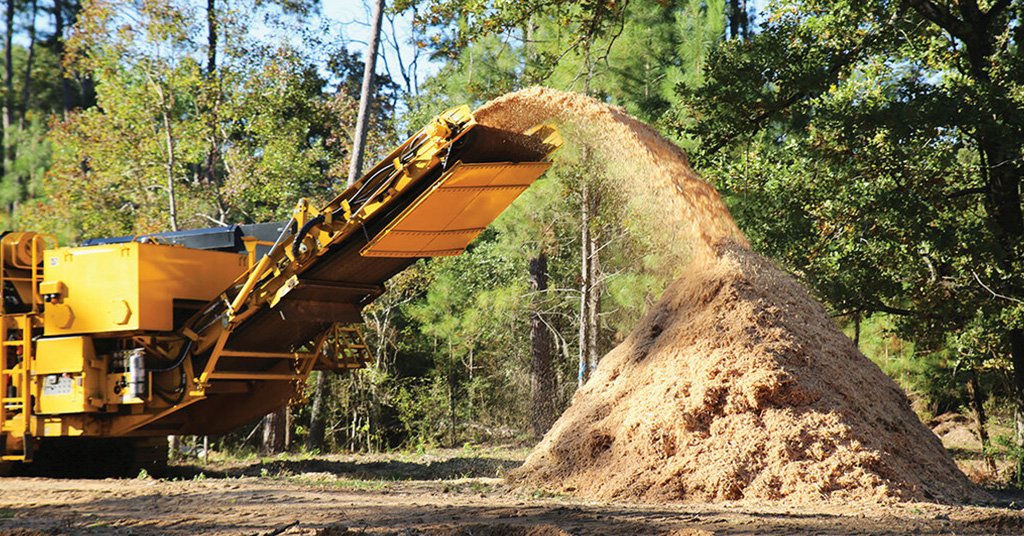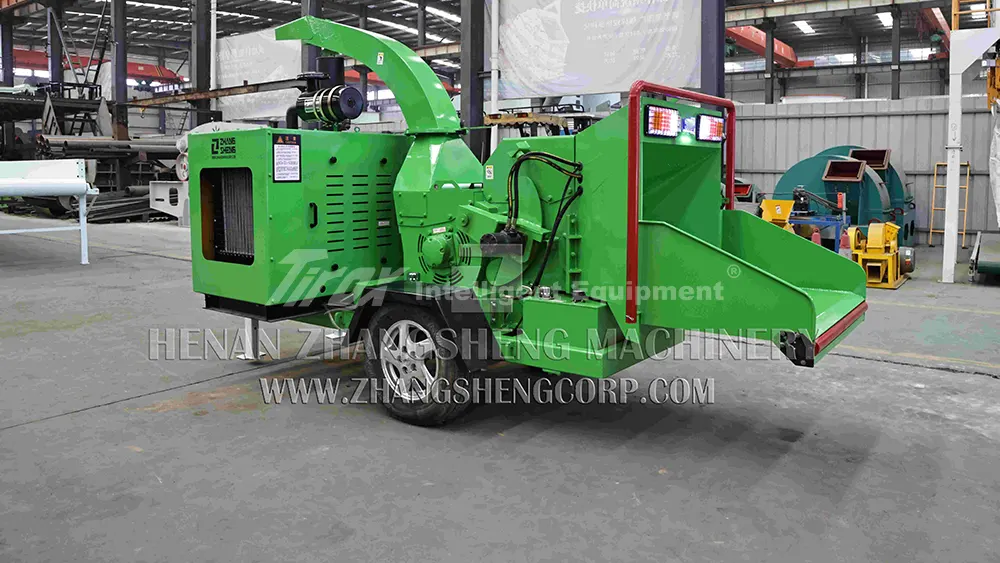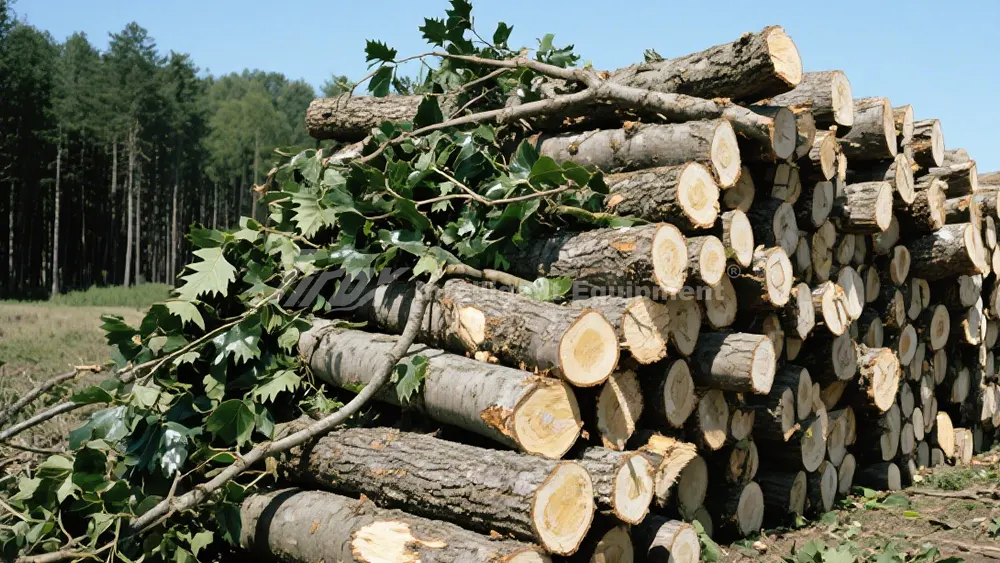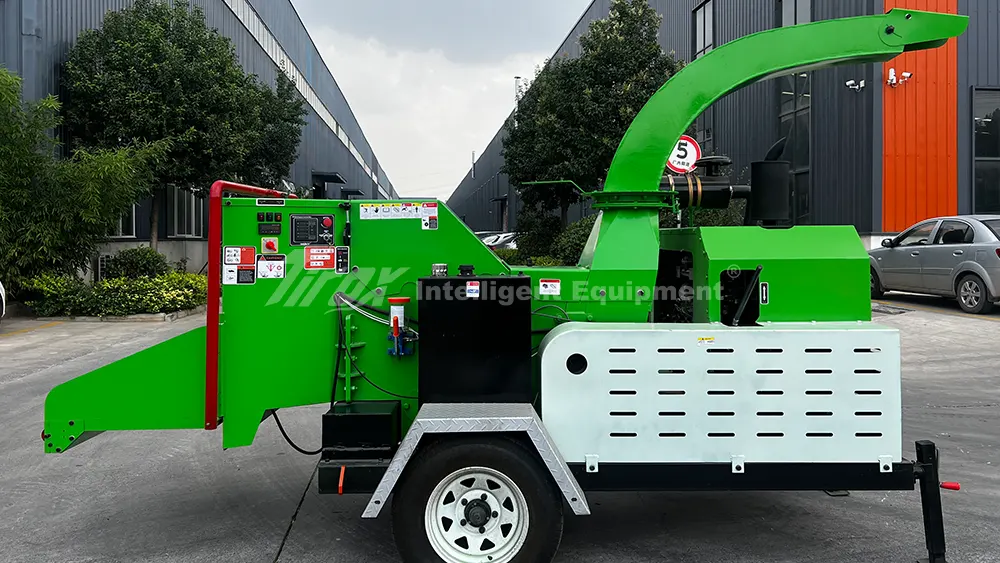Are you struggling to select the right industrial wood chipper for your forestry or biomass needs? Learn how to pick wisely to enhance your productivity.
Understanding the precise requirements and operational conditions is crucial for selecting the ideal wood chipper that boosts efficiency and profitability. Consider material types, desired output, and site conditions.
Choosing the right wood chipper involves more than just looking at price tags; it’s about understanding the nuances of your operations.
Understanding Your Operational Needs?
Do you need clarity on what factors to consider regarding your operational needs? Let’s dive deep into the specifics.
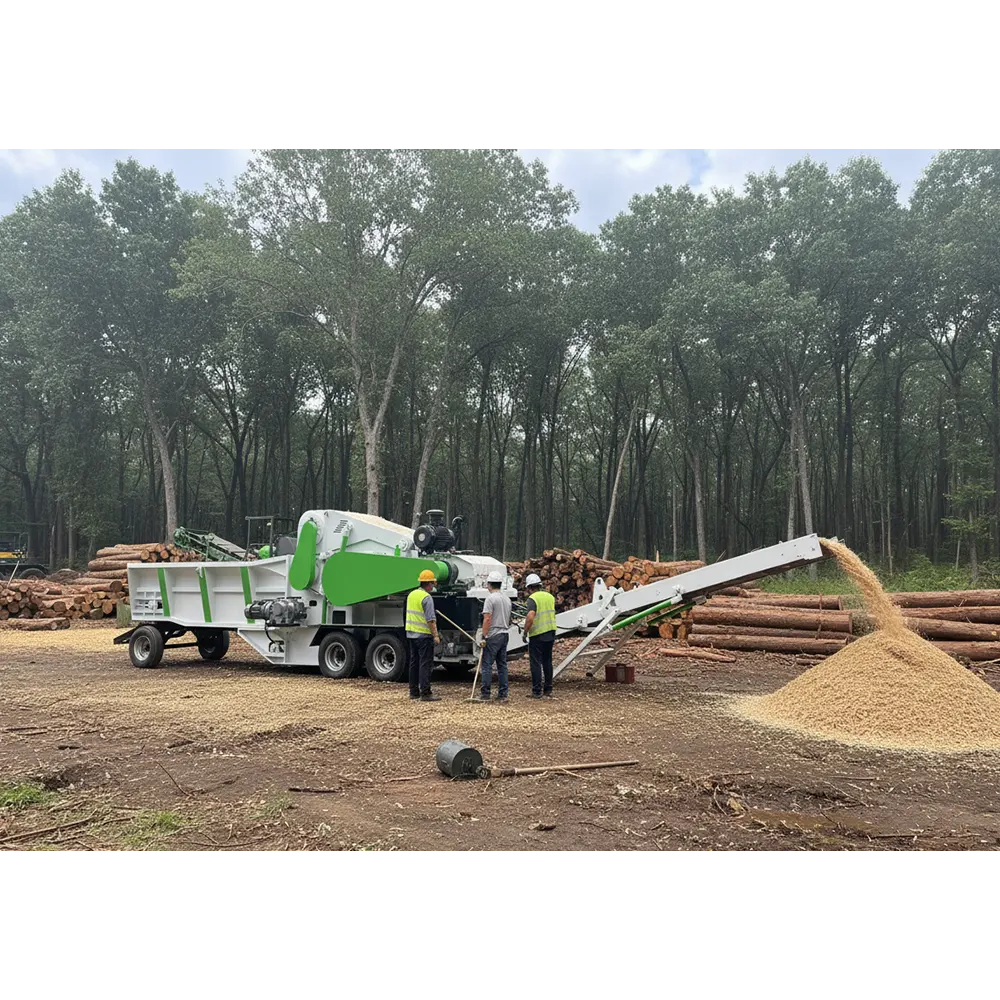
Assess the primary materials you’ll be processing (e.g., whole trees, logging residues) and determine the necessary chip size and machine mobility based on your site conditions.
Material Types and Dimensions: The type of material and its dimensions significantly influence the choice of wood chipper. Whether it’s whole trees, logging residues, or sawmill waste, the size and hardness will dictate the type of chipper mechanism—drum, disc, or horizontal grinder—that’s best suited for your operations. Understanding the maximum diameter and length of the material is essential to select a chipper with an appropriate infeed size to handle your specific requirements efficiently.
Desired Output Specifications: The required chip size and uniformity are crucial for downstream processes, especially if the chips are intended for biomass fuel or pulp production. Different chippers produce different chip sizes; for instance, disc chippers are known for producing very uniform chips, which are ideal for pulp and paper making. It’s important to know the specifications like G30 or G50 standard chip sizes if the chips are to be used for biomass fuel.
Site Conditions and Mobility: The choice between stationary and mobile chippers depends on your site’s terrain and logistical needs. If you frequently need to move the chipper across different sites or rugged terrains, consider opting for a track-mounted or trailer-mounted model. Assessing the site conditions, including space for operation and storage, accessibility, and terrain, is vital in deciding whether a more robust and less mobile chipper is suitable or if a more flexible, mobile version is needed.
Budget and Return on Investment (ROI): While higher-capacity and more feature-rich chippers might be tempting, it’s important to consider your budget and the expected ROI. Calculate the operational costs, including fuel, maintenance, and potential downtime, against the revenue the chipper will generate through increased productivity or new capabilities. A cheaper model might save money upfront but could cost more in the long run due to higher operational costs and lower efficiency.
Key Technical Considerations?
Confused about the technical aspects of wood chippers? Let’s break down the critical features you need to consider.
Evaluating the engine power, feed system, chipping mechanism, and safety features are vital to ensure your wood chipper meets operational demands efficiently and safely.
Engine Power and Fuel Efficiency: The engine is the heart of a wood chipper. The choice between diesel and electric engines depends on the availability of power sources at the site and operational cost concerns. Diesel engines are powerful and mobile, suitable for remote sites without electricity. However, electric engines are quieter, emit less pollution, and generally have lower running costs. Consider the horsepower required to process the types of materials you handle—denser, larger materials might require more powerful engines to maintain efficiency.
Feed System Design: The design of the feed system plays a crucial role in operational efficiency. Horizontal feed systems are common and are considered safer as they allow gravity to assist in the feeding process. However, hydraulic feed rollers that adjust the feeding rate based on the load can prevent jams and reduce wear and tear, enhancing the longevity and uptime of your equipment.
Chipping Mechanism: The choice of chipping mechanism—drum, disc, or horizontal grinder—depends on the desired chip size and the nature of the materials processed. Drum chippers are versatile and can handle a variety of materials but might produce less uniform chips. Disc chippers provide high uniformity, which is essential for applications like pulp making. Horizontal grinders are suited for processing mixed or contaminated waste as they can handle materials like metal contaminants with less risk of damage.
Discharge System: Efficient chip collection and handling are crucial for operational efficiency. Systems equipped with blower systems and conveyor belts can automate the collection process, reducing manpower requirements and streamlining operations. Additionally, chip screening options can ensure uniformity in chip size, enhancing product quality for downstream processes.
Safety Features and Compliance: Safety is paramount in heavy equipment operation. Ensure that the wood chipper you choose has adequate safety features like emergency stops, guarding around moving parts, and remote control options for safe operation. Compliance with industry standards not only ensures operator safety but also avoids potential legal issues.
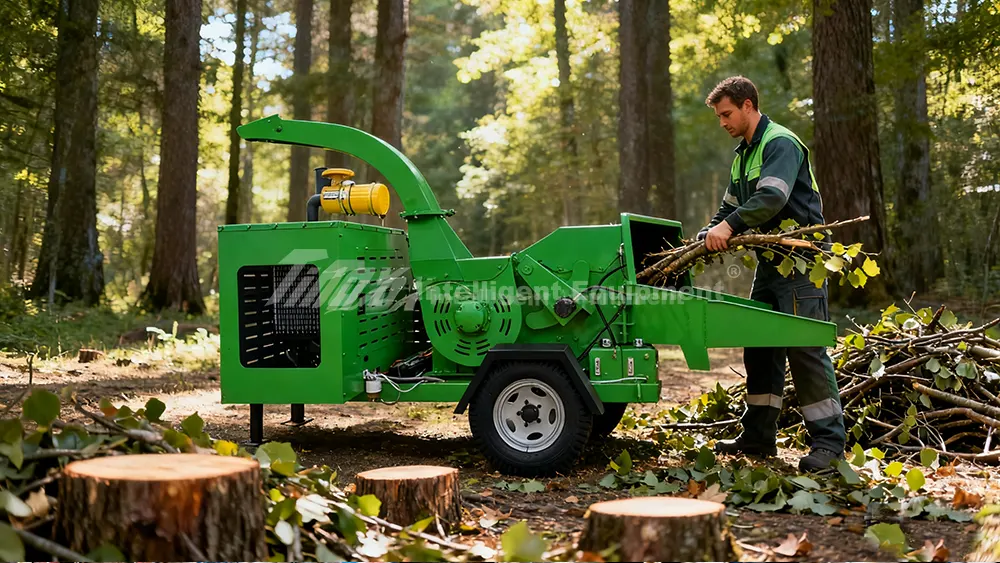
Evaluating Manufacturers and After-Sales Support?
Wondering how to choose the right wood chipper manufacturer and ensure reliable after-sales support? Here’s what you need to know.
Selecting a reputable manufacturer with a strong after-sales support network is crucial for long-term operational stability and efficiency.
When it comes to selecting a wood chipper manufacturer, reputation, and reliability are key. Look for manufacturers who are known for technological innovation and robust equipment. Check online reviews or ask for client testimonials to gauge the satisfaction of other customers. Explore how our innovations in wood chipper technology set us apart.
After-sales support is crucial for minimizing downtime and maintaining high operational efficiency. Ensure the manufacturer has a strong service network that can provide quick maintenance and repair services. Availability of spare parts is also critical to avoid long waits for essential repairs, which can lead to costly downtime. Consider manufacturers that offer comprehensive warranty terms and long-term maintenance contracts to ensure your equipment remains in top working condition.
Conclusion
Choosing the right wood chipper involves careful consideration of your specific needs, the technical features of the equipment, and the manufacturer’s support.


